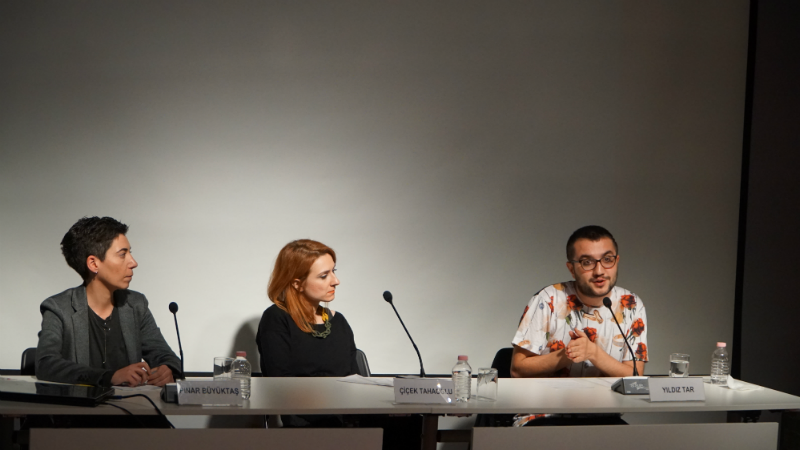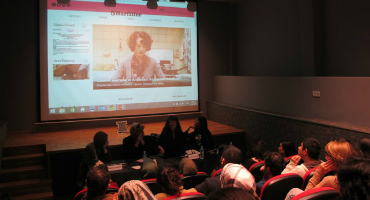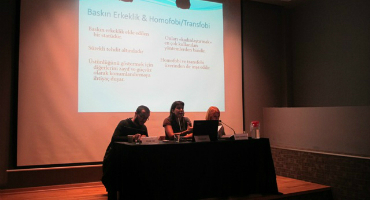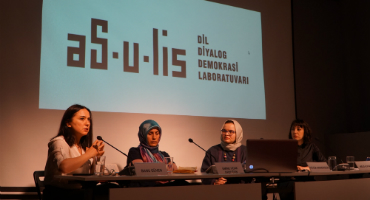Organized by ASULIS Discourse, Dialog and Democracy Laboratory of Hrant Dink Foundation, the panel discussion titled 'Gender Equality and Discrimination in Media' was held on December 11, 2017 in Anarad Hığutyun Building Havak Hall. Moderated by Çiçek Tahaoğlu, women and LGBTI news editor at bianet, the panel was held with the participation of Pınar Büyüktaş, who is the coordinator of “Transforming our Language: Rights-based Journalism in the field of Sexual Violence” project carried out by Association for Combating Sexual Violence, and Yıldız Tar, media and communications coordinator at KAOS GL.
After Çiçek Tahaoğlu’s opening speech, Pınar Büyüktaş talked about the events held for discussing notions at the beginning of the project and stated that they discussed what are the notions related to sexual violence and the importance of enabling people to talk about sexual violence more. She stated that while they were working on correct usage of notions and how to make such usage widespread, they realized that no change is possible as long as media keeps using these wrong notions and expressions. She noted that their focus in “Transforming our Language: Rights-based Journalism in the field of Sexual Violence” project is to seek for ways of collaboration in initiating correct usage in right place and with this purpose, they met media workers and journalism students. Stating that the language and visual material used by media in articles covering sexual violence affect the way we think about sexual violence, Büyüktaş noted that they are making efforts and seeking for collaborations to change this language. She pointed out that media has a crucial role in the issue of sexual violence and also a major influence on spreading and changing ideas.
Referring to findings of 2017 reports of KAOS GL that has been monitoring media for 10 years, second speaker Yıldız Tar stated that the better part of articles covering LGBTIs in Turkish print media contains human rights violations concerning LGBTIs. Emphasizing that print media generates discriminatory language and hate speech by associating LGBTI identities with illness, crime, sin or perversion, Tar stated that we are going through a period in which media targets LGBTIs at an alarming frequency. Stating that media has enough power to determine people’s lives, daily life and many other areas of life, Tar said that Turkish media looks very negative in terms of LGBTIs. Tar stated that especially media in Turkey uses a language that doesn’t regard LGBTIs as subject and an ideology of discrimination against LGBTIs took root with the help of the ongoing system excluding LGBTIs.





